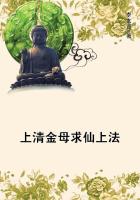PERSONS OF THE DIALOGUE MENO;
SOCRATES;
A SLAVE OF MENO;
ANYTUS
Meno. Can you tell me, Socrates, whether virtue is acquired by teaching or by practice; or if neither by teaching nor practice, then whether it comes to man by nature, or in what other way?
Socrates. O Meno, there was a time when the Thessalians were famous among the other Hellenes only for their riches and their riding; but now, if I am not mistaken, they are equally famous for their wisdom, especially at Larisa, which is the native city of your friend Aristippus. And this is Gorgias' doing; for when he came there, the flower of the Aleuadae, among them your admirer Aristippus, and the other chiefs of the Thessalians, fell in love with his wisdom. And he has taught you the habit of answering questions in a grand and bold style, which becomes those who know, and is the style in which he himself answers all comers; and any Hellene who likes may ask him anything. How different is our lot! my dear Meno. Here at Athens there is a dearth of the commodity, and all wisdom seems to have emigrated from us to you. I am certain that if you were to ask any Athenian whether virtue was natural or acquired, he would laugh in your face, and say: "Stranger, you have far too good an opinion of me, if you think that I can answer your question. For I literally do not know what virtue is, and much less whether it is acquired by teaching or not." And I myself, Meno, living as I do in this region of poverty, am as poor as the rest of the world; and I confess with shame that I know literally nothing about virtue; and when I do not know the "quid" of anything how can I know the "quale"? How, if I knew nothing at all of Meno, could I tell if he was fair, or the opposite of fair; rich and noble, or the reverse of rich and noble? Do you think that Icould?
Men. No, Indeed. But are you in earnest, Socrates, in saying that you do not know what virtue is? And am I to carry back this report of you to Thessaly?
Soc. Not only that, my dear boy, but you may say further that I have never known of any one else who did, in my judgment.
Men. Then you have never met Gorgias when he was at Athens?
Soc. Yes, I have.
Men. And did you not think that he knew?
Soc. I have not a good memory, Meno, and therefore I cannot now tell what I thought of him at the time. And I dare say that he did know, and that you know what he said: please, therefore, to remind me of what he said; or, if you would rather, tell me your own view; for Isuspect that you and he think much alike.
Men. Very true.
Soc. Then as he is not here, never mind him, and do you tell me:
By the gods, Meno, be generous, and tell me what you say that virtue is; for I shall be truly delighted to find that I have been mistaken, and that you and Gorgias do really have this knowledge;although I have been just saying that I have never found anybody who had.
Men. There will be no difficulty, Socrates, in answering your question. Let us take first the virtue of a man-he should know how to administer the state, and in the administration of it to benefit his friends and harm his enemies; and he must also be careful not to suffer harm himself. A woman's virtue, if you wish to know about that, may also be easily described: her duty is to order her house, and keep what is indoors, and obey her husband. Every age, every condition of life, young or old, male or female, bond or free, has a different virtue: there are virtues numberless, and no lack of definitions of them; for virtue is relative to the actions and ages of each of us in all that we do. And the same may be said of vice, Socrates.
Soc. How fortunate I am, Meno! When I ask you for one virtue, you present me with a swarm of them, which are in your keeping. Suppose that I carry on the figure of the swarm, and ask of you, What is the nature of the bee? and you answer that there are many kinds of bees, and I reply: But do bees differ as bees, because there are many and different kinds of them; or are they not rather to be distinguished by some other quality, as for example beauty, size, or shape? How would you answer me?
Men. I should answer that bees do not differ from one another, as bees.
Soc. And if I went on to say: That is what I desire to know, Meno;tell me what is the quality in which they do not differ, but are all alike;-would you be able to answer?
Men. I should.
Soc. And so of the virtues, however many and different they may be, they have all a common nature which makes them virtues; and on this he who would answer the question, "What is virtue?" would do well to have his eye fixed: Do you understand?
Men. I am beginning to understand; but I do not as yet take hold of the question as I could wish.
Soc. When you say, Meno, that there is one virtue of a man, another of a woman, another of a child, and so on, does this apply only to virtue, or would you say the same of health, and size, and strength? Or is the nature of health always the same, whether in man or woman?
Men. I should say that health is the same, both in man and woman.
Soc. And is not this true of size and strength? If a woman is strong, she will be strong by reason of the same form and of the same strength subsisting in her which there is in the man. I mean to say that strength, as strength, whether of man or woman, is the same. Is there any difference?
Men. I think not.
Soc. And will not virtue, as virtue, be the same, whether in a child or in a grown-up person, in a woman or in a man?
Men. I cannot help feeling, Socrates, that this case is different from the others.
Soc. But why? Were you not saying that the virtue of a man was to order a state, and the virtue of a woman was to order a house?
Men. I did say so.
Soc. And can either house or state or anything be well ordered without temperance and without justice?
Men. Certainly not.
Soc. Then they who order a state or a house temperately or justly order them with temperance and justice?
Men. Certainly.
Soc. Then both men and women, if they are to be good men and women, must have the same virtues of temperance and justice?
Men. True.
Soc. And can either a young man or an elder one be good, if they are intemperate and unjust?
Men. They cannot.














